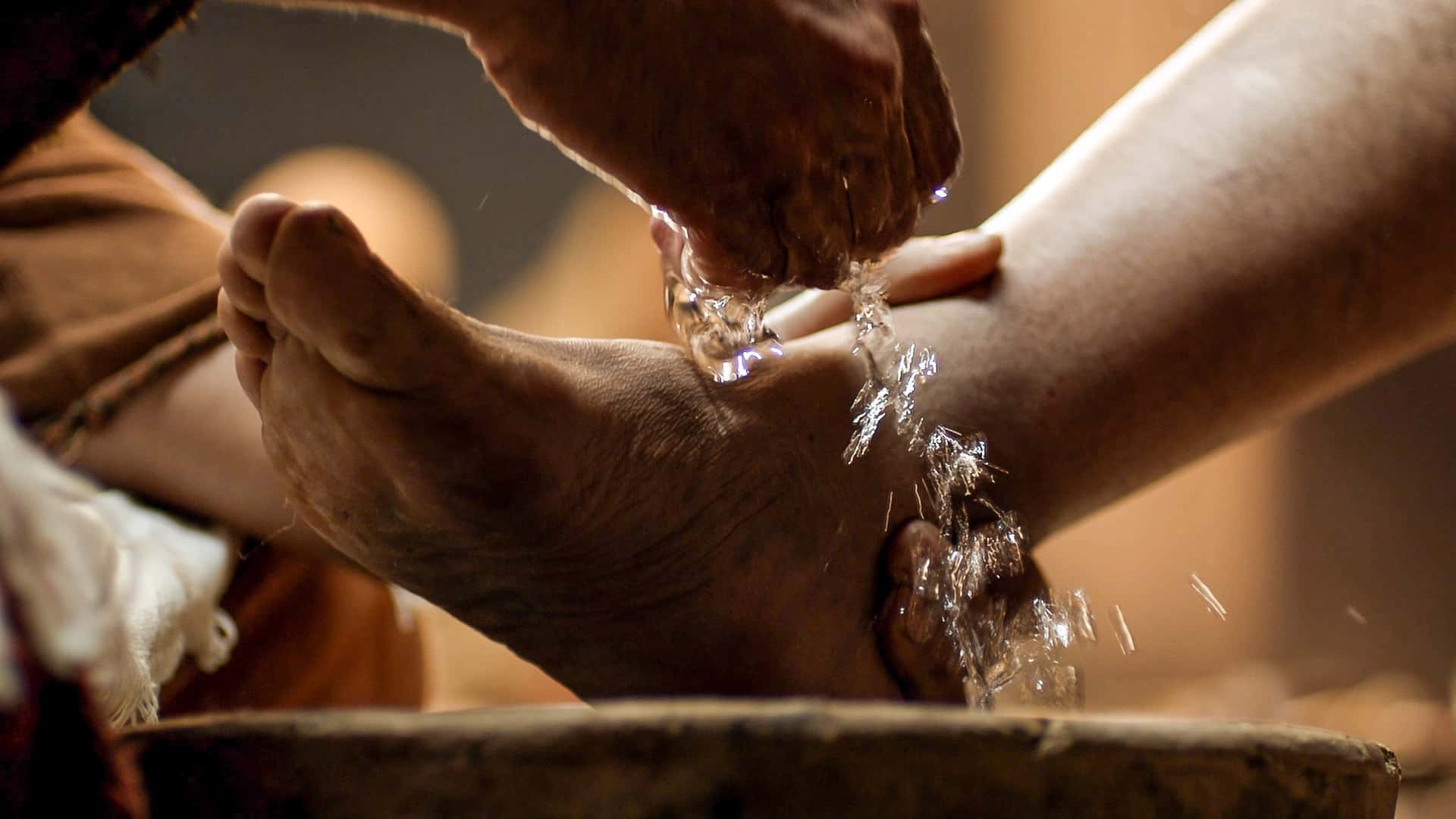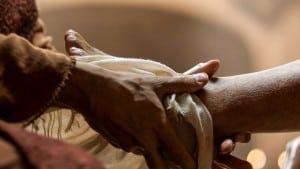In Jesus’ day, footwashing was important because people walked when they traveled and because they trod dusty roads. But the chore of footwashing was considered to be such a disgusting job that a Hebrew slave could not be required to perform it. This understanding enhances our appreciation of John the Baptist’s statement about Jesus in Luke 3:16. People were wondering whether or not John was the Messiah, so he explained, “I baptize you with water, but One is coming who is more powerful than I. I am not worthy to untie the strap of His sandals. He will baptize you with the Holy Spirit and fire” (emphasis added; see also Matt. 3:11; Mark 1:7). Why would John have occasion to untie Jesus’ sandal straps? To wash His feet. So John was saying He was unworthy even to wash His feet.
Usually a host would provide water for his guests so they could wash their own feet (Luke 7:44), so whenever someone voluntarily washed his or her master’s feet, it was a lavish expression of respect and love (see vv. 36-50). Yet in John 13:4-15, Jesus the Master performed this lowly task for His followers.
Why was it so important for Jesus to wash His disciples’ feet? First, it gave the disciples an example (see John 13:15) of right behavior to emulate. Jesus’ point was not primarily that His followers needed to wash one another’s feet, but that they were to serve one another extravagantly. Such service included footwashing in Jesus’ day, but in many other cultures in other eras, it has not. Yet it always did, would, and will include humility and self-giving service. This kind of self-sacrifice is to characterize Christians even today. How can we make it more a part of the culture of the church than it is currently?
A second reason it was important for Jesus to wash His followers’ feet is what it represented regarding salvation. John wrote that Jesus “got up from supper, laid aside His robe, took a towel, and tied it around Himself. Next, He poured water into a basin and began to wash His disciples’ feet with the towel tied around Him” (vv. 4-5). When the task was completed, “Jesus…put on His robe, [and] He reclined again and said to them, ‘Do you know what I have done for you?’” (v. 12). When Jesus “laid aside His robe” to serve His disciples and then, after serving them, put His robe back on, He was performing both symbolic actions as well as practical ones. Earlier, in describing Himself as the Good Shepherd, Jesus said, “I lay down My life for the sheep.…I am laying down my life so I may take it up again. No one takes it from Me, but I lay it down on My own. I have the right to lay it down, and I have the right to take it up again” (10:15,17-18). The robe, therefore, symbolized Jesus’ life, which He would give sacrificially for all His followers.
Indeed, the conversation between Jesus and Peter in John 13:6-11 underscores that the footwashing was about a great deal more than cleansing physical feet. Peter resisted Jesus’ offer to wash his feet, but Jesus said, “If I don’t wash you, you have no part with Me” (v. 8). So Peter suggested Jesus wash his head and hands too. The Lord responded that after a person has had a bath, only his feet need to be washed for him to be fully clean. But not everyone was clean, Jesus said, because “He knew who would betray Him” (v. 11). While Jesus’ words to Peter about not needing a second bath remind us of His words in John 10:27-29; His words about not everyone’s being clean remind us of what He said in Matthew 7:21.
Copyright © 2016 B. Nathaniel Sullivan. All rights reserved.
photo credits: http://www.lumoproject.com
Unless otherwise noted, all Scripture quotations in this article are taken from the Holman Christian Standard Bible®, Copyright © 1999, 2000, 2002, 2003, 2009 by Holman Bible Publishers. Used by permission. Holman Christian Standard Bible®, Holman CSB®, and HCSB® are federally registered trademarks of Holman Bible Publishers.

